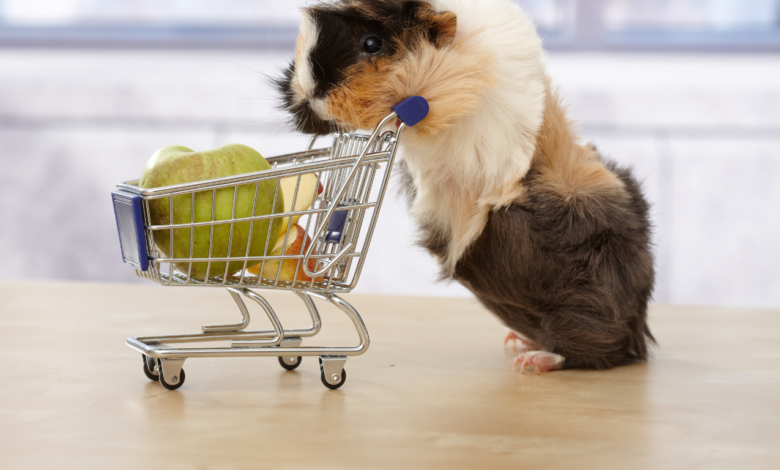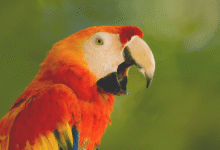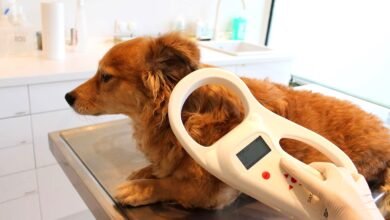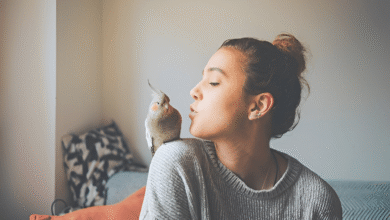
What Can Guinea Pigs Eat? | PetCare Mag
Guinea pigs are wonderful pets that aren’t too hard to care for. Many Guinea pigs can live for 5 years or more with good food and care from a vet. To keep a guinea pig happy and healthy, you must know much about what they eat.
The most important thing a guinea pig eats is grass hay. It should make up about 75% of their food intake. Vitamin C supplements, a small amount of pellets made just for guinea pigs, veggies, and water, are also important in their diet. Fruits should only be given as treats and not too often. Your guinea pig shouldn’t eat more than 5% fruit.
Foods for Guinea Pigs
Guinea pigs have a reasonably fast metabolism and need to eat almost constantly. They only eat plants, so you should never give them animal nutrition.
Like most animals, guinea pigs do better on some foods than on others. Even though you can buy pellets for guinea pigs, some of which include seeds and nuts, giving your guinea pig only pellets will cause many health problems. Seeds and nuts should never be fed to guinea pigs; pellets should only make up a small part of their food.
Many pet shops and companies sell items for guinea pigs that haven’t been tested for safety. In some cases, the goods hurt the cavies right away. When you buy things for your guinea pig, keep this in mind. Even if something says it’s suitable for guinea pigs, that doesn’t mean it always is.
What Do Guinea Pigs Eat?
The most important thing in your cavy’s food is hay. Guinea pigs should have access to high-quality grasshays 24 hours a day, 7 days a week. Timothy and orchard grass hays are famous, but meadow, oat, and brome hays also work well for guinea pigs. Common teeth and digestive problems can be avoided if hay is always available.
Grasses are rough, so they help guinea pigs wear down their teeth as they grow. Without this stimulation, the cavy’s teeth can easily grow too long, get infected, or make it so it can’t eat properly. Alfalfa or clover hay should only be given to young cavies or cavies that are pregnant. This is because it is high in calories and calcium, which can lead to fat, abnormal calcium buildup, and bladder stones. Most vets suggest Oxbow hay products because they are safe and good for you.
The next most important food for a cavie is vegetables. When adding new foods, be careful because it could cause gas or diarrhea. Once your guinea pig is used to eating many kinds of veggies, you can give it half a cup to a cup of a mix every day. Every day, try to eat two or three different kinds of veggies.
Pellets can be given in small amounts, usually one to two tablespoons per cavy. Make sure to use pellets made for guinea pigs. A cavie’s food should include high-quality grass pellets, but they can never replace hay. Always make sure to give them plenty of grass hay and just a few pellets. Veterinarians often suggest Oxbow because it is a safe and high-quality brand. Never put seeds, nuts, or dried fruits in pellets.
Fruits and treats shouldn’t be given every day, but only once or twice a week. These are often empty calories that don’t give the cavy anything it needs to stay healthy. Treats are also high in sugar, which can lead to weight gain and GI problems. As a treat, many guinea pigs enjoy hay cubes, carrot tops, and apples.
All cavies need to take vitamin C as a supplement. Unlike many other animals, guinea pigs can’t make vitamin C on their own. They have to get it from their food. Scurvy and other illnesses can happen when you don’t get enough vitamin C. If your guinea pig is sick with any kind of sickness, it may need more vitamin C. Always ask your vet how much to give your pet. Oxbow is a brand of vitamin C supplements that people trust.
Veterinarians don’t suggest adding vitamin C to the water because it can break down quickly and make the water taste funny. This could make the guinea pig less likely to drink, which could make it dehydrated. Many guinea pig treats also have vitamin C added to them, but they may not have nearly enough if they are exposed to light, heat, or moisture. Along with vitamin C-rich veggies, the most reliable way to get extra vitamin C is through tablets.
At all times, there should be water. Most guinea pigs do best when a sipper bottle is attached to the side of their box. But check it often because many guinea pigs like to play with the bottles and chew on them.
What Fruits Can Guinea Pigs Eat?
Fruit shouldn’t be given too often because it can cause painful gas and is full of sugar and calories that don’t do anything. Fruits should be given as treats and make 5% or less of a person’s daily meal. Some good foods that guinea pigs sometimes enjoy are:
- Apples
- Pineapple
- Kiwifruit
- Berries
- Cantaloupe
What Vegetables Can Guinea Pigs Eat?
Guinea pigs can eat many different kinds of veggies. Each new food should be added slowly so that it doesn’t cause stomach problems or diarrhea. Once a veggie is chosen, the guinea pig should get several different kinds of it every day. Pet owners should rotate through all the vegetables every so often, not only to keep their pets from getting bored but also to give them a good mix of vitamins and minerals. Some foods that guinea pigs often eat are:
- Parsley
- Romaine lettuce
- Cilantro
- Leaf lettuce
- Carrots
- Tomatoes
- Clover
- Dandelion greens
What Can Guinea Pigs Not Eat?
Guinea pigs should never eat certain things. Some foods, like peppers and cucumbers, aren’t bad for cavies, but too much can cause them to have too much gas and bloat, so they should be avoided in large amounts. Some foods that guinea pigs should never eat are:
- Nuts, seeds, dried fruits
- Meat products
- Rabbit pellets, or pellets made for any other animal
- Multivitamins (vitamin C is required; multivitamins may cause other diseases unintentionally)
- High-starch foods like peas, beans, corn, cakes, cereal, grains, bread
- Spoiled or unwashed foods—if it is not safe for human consumption, they should not be offered to a cavy
Foods to give sparingly, if at all, include:
- Cruciferous vegetables such as cabbage, collards, bok choy, and broccoli may cause gas
- High oxalate greens, such as kale, spinach, chards, and collards, may promote bladder and kidney stones
- Commercial treats like yogurt drops have excess sugar and fat, causing obesity and other health concerns. Feeding in excess may cause a cavy not to eat the other nutritious parts of their diet.
Multivitamins and Mineral Wheels for Your Guinea Pigs
Multivitamins and mineral or salt wheels are sold to add to your guinea pig’s food. The wheels are also sold as places for your guinea pig to gnaw. But you shouldn’t need these things if you give your guinea pig a broad and well-balanced diet.
Some of the glues and adhesives that hold mineral and salt wheels together may be dangerous. Also, the cleaning process for salt wheels adds chemicals that your pig doesn’t need to eat. Even though there isn’t agreement on these goods, they shouldn’t be high on your list of how to spend your money on pet supplies.
FAQS
What food do guinea pigs eat?
They naturally feed, eating only grass, herbs, and some other plants (like dandelion or groundsel) for long periods of time, both day and night. Remember that guinea pigs’ digestive systems work best when they eat hay or grass.
What is the best thing to feed guinea pigs?
Guinea pigs should eat timothy or other low-calcium hay as much as they want, along with small amounts of high-fiber, timothy-based guinea pig treats from the store. Every day, vitamin C should be given (see below). Hay should be available at any time of the day.







